Best Audio Equipment Reviews
Best-in-Class Reviews

Multi-Channel Home Theater (10 Best Ranked & Reviewed)
Nowadays, home entertainment and surround sound systems have become more and more popular among people who want to enjoy superb…
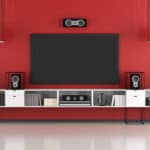
Home Theatre Power Managers Explained [10 Best Reviewed]
If you want the best home theater experience, you need the best home theatre power manager. A power conditioner ensures…

Top Coaxial Speaker Cables in 2023 [Buying Guide]
Coaxial speaker cables are very popular these days because of the excellent quality sound they produce and the simplicity they…

7 Best Portable Turntables (Ranked & Reviewed)
At this time, there are many options available for people who want to buy a portable record player. Hence, choosing…
Latest Reviews
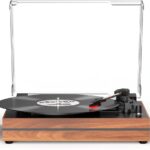
Belt-Drive Turntable Vintage Vinyl LP Player Review
Explore the fusion of vintage charm and modern tech with this Belt-Drive Turntable. Perfect for vinyl enthusiasts, offering Bluetooth, AUX, and quality sound.

WPESI Vinyl Record Stand Wall Mount Review
Elevate your vinyl display with WPESI Record Stand Wall Mount. Perfect blend of style & functionality for music lovers. Easy install, unique gift idea. #VinylLove

Crosley T400D-BK Fully Automatic Turntable Review
Discover the Crosley T400D-BK Turntable, blending vintage charm with modern tech. Read our review for insights on its auto features & Bluetooth connectivity.
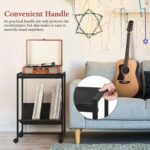
Record Player Table Review
Discover the ultimate vinyl storage solution with our review of the Record Player Table. Perfect for any room, it offers style, function, and easy access to your favorite records.
Headphones by Music Genre
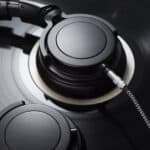
10 Best Headphones for Classical Music (Ranked & Reviewed)
Are you looking for the best headphones for classical music? Look no further! In this guide, we gathered all the…

7 Best Headphones for Binaural Beats in 2023
The best headphones for binaural beats are those that fit comfortably in your ears, deliver a clean sound, and have…

7 Best Headphones for Hip-Hop in 2023
Looking for the best headphones for Hip-Hop and Rap? If yes, you can use our headphone reviews to get the…

5 Best Headphones for Drum and Bass in 2023
If you’re a fan of the drum and bass genre, you know how important it is to have the right…
Headphones by Activities

11 Best Headphones for Meditation (Ranked & Reviewed)
As someone who practices meditation, I can’t stress enough the importance of having the right tools to help enhance this…

7 Best Headsets for Streaming in 2023
Are you looking for the best headsets for streaming? Look no further! In this article, we provide a comprehensive guide…

12 Best Headphones for Sauna Sessions
Sauna sessions are a great way to relax and benefit from the heat. However, having the best headphones for sauna…

10 Best Ski Helmet Headphones in 2023
Do you want to enjoy your favorite music while riding skiing or snowboarding? Or maybe you just want to listen…
Buying Guides

Experience the Best of Both Worlds with a Home Stereo System Featuring a Turntable and CD Player
Rediscover your music collection with a versatile home stereo system with a turntable and CD player. This all-in-one audio system…
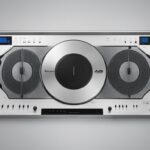
The Evolution of the Audio Technica Logo: A Blend of Tradition and Innovation
Welcome to our exploration of the fascinating journey behind the Audio Technica logo. Over the years, this iconic emblem has…

The Joy of Casual Listening: Relax, Unwind, and Enjoy the Music
Welcome to the world of casual listening, where easygoing music and laid-back tunes create the perfect backdrop for relaxation and…

Rocking Outdoors: The Best Outdoor Speakers for Your Next Party
Outdoor parties are incomplete without the perfect set of outdoor speakers. To ensure a party that rocks, you need speakers…
How-To Guides

How to Reset AirPods: Step-by-Step Guide
Greetings! In this comprehensive guide, I will walk you through the process of resetting your AirPods, providing you with the…

Master Guide: How to Calibrate a Turntable Perfectly
Welcome to the ultimate guide on how to calibrate a turntable perfectly. Whether you’re a DJ, a vinyl enthusiast, or…

How to Replace a Turntable Cartridge?
Are you looking to improve the sound quality of your favorite records? If so, learning how to replace a turntable…
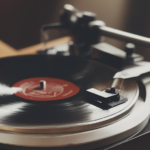
The Ultimate Guide to Replacing Your Turntable Needle
For anyone serious about their vinyl collection, you’ll know that the needle, or stylus, of your turntable plays a crucial…
